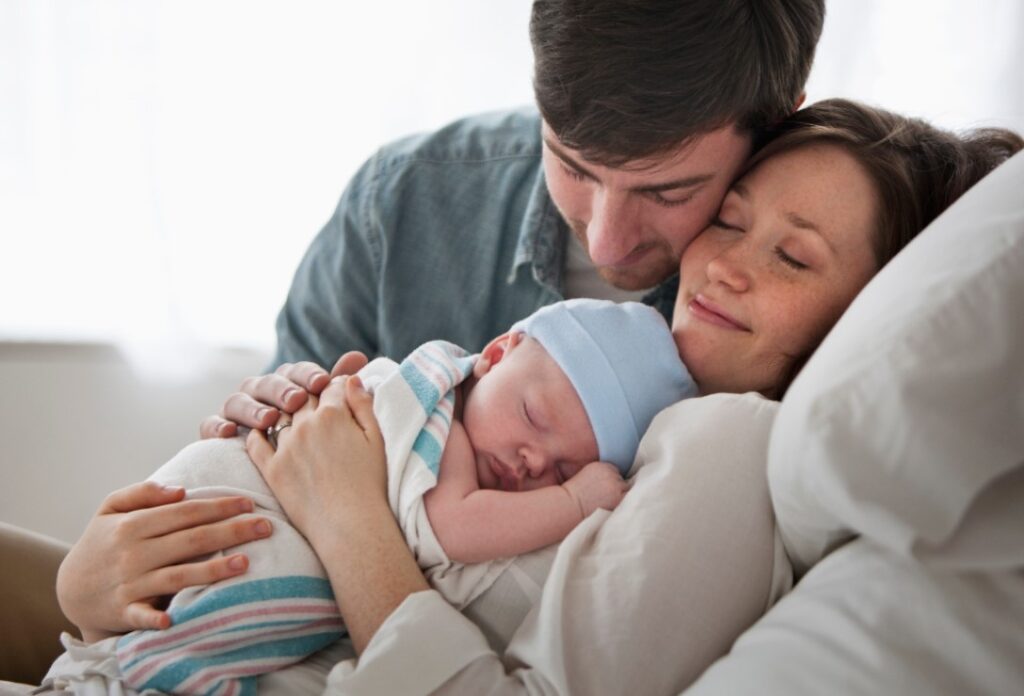It’s easy to get caught up in the excitement of potential parenthood. Before you pull the goalie and go all-in toward procreation, take a pause. Parenthood isn’t all cute outfits and cuddles. Adding a child to your life is a gift. But it also comes with significant lifestyle changes, responsibilities, and costs.
There’s no guarantee parenthood will be exactly as you expect. Chances are, it will be even better than you can imagine. But sometimes surprises come out of the left field, and you’re left unprepared. Avoid an unnecessary panic while you welcome your child into the world.
Check out this list before you start trying, and you’ll be able to focus on the excitement of your new arrival.
1. Imagine Your Ideal Future

If you’ve got babies on the brain, it’s time to share your dreams with your partner. Take a calm evening to discuss what your future with a baby could look like. Talk about how many children you think you would like to have.
It’s possible this is the first time you’ve had an in-depth discussion with one another regarding children. Take time to listen closely and let each other talk about dreams and reservations. If you both aren’t on the same page, that’s OK. This discussion may take months or more before you determine the right move for your family. So don’t make any rash decisions.
If you’re currently on birth control, resist the urge to stop taking it. Oral birth control works as it’s intended when it is taken at the same time each day. Veering from that practice could result in an unplanned pregnancy before you and your partner are ready. If you’re almost out, consider getting birth control online to fill the gap before you decide to try for a baby. You can get more information about birth control at Nurx.com.
2. Consider Where Kids Fit Into Your Life
It may be easy to imagine a baby and your family in your annual photos. But have you considered how a baby fits into your current lifestyle? Assess your present living situation and determine where you may incorporate baby’s essentials. As a future parent, you may not realize all of the equipment and accessories that children seemingly require.
While some kid gear is overkill, you will need some essentials. Plan for a place for the baby to sleep, clothes storage, diaper changing, and play. You’ll also need to account for safe transportation. This means acquiring a car seat and ensuring that your vehicle is baby safe. You’ll also need a stroller for walks and days at the park or zoo.
Consider your care plan for your new baby. If you work, you will need to secure safe child care for your little one. Start researching your child care options now. Identify costs, hours of operation, and requirements. This is key information to have before you make a decision.
Child care is often one of the biggest stressors and expenses associated with having children. Making your plan today will help you go into parenthood with clear eyes and a balanced budget.
3. Calculate the Costs

Before your child is born, you’ll have extensive expenses related to pregnancy and childbirth. At the beginning, most costs will surround the person intending to be pregnant. Prenatal vitamins, healthy food, and maternity clothes will be real-time expenses that are nonnegotiable.
If you need fertility support, that’s a whole new financial ballgame. Check with your insurer to review what fertility treatments are covered and to what extent. Childbirth often pushes most people into their maximum out-of-pocket expense for their insurance. Review your policy to see what this amount is. If you don’t yet have that amount saved, now is the time to stash some cash.
Depending on the time frame in which you become pregnant, you may incur expenses over two calendar years. This would mean that you could pay beyond one year’s maximum out-of-pocket limit. If you have the opportunity to change your insurance elections, do so. It would be wise to max out your pre-tax health savings deduction as well.
Outside of the immediate childbirth-related expenses, consider the average lifetime expenditure on children. According to Bankrate, most parents spend an average of $233,610 from ages from birth to 17. This amount does not account for potential contributions to college expenses.
While the cost of having children is enormous, don’t let it deter you, and remember these costs are spread out over time. If becoming a parent is something you desire, make adjustments so it’s reasonable for you and your bank account.
4. Come to Terms With Inevitable Lifestyle Changes
You may spend your weekends exploring local breweries or traveling. Once you have children, expect significant lifestyle changes. While change is not bad, it will reduce spontaneity in your life.
Children tend to thrive when their lives run on a schedule. You will soon be beholden to your kids’ bedtimes when it comes to doing anything. Respecting this time boundary will be to your benefit. But it may give you moments of frustration when you have to cut out of an event early.
Consider the activities you enjoy today and which of them can be reasonably done with children. If most of the things you like to do are child-free activities, plan to pay for a babysitter. Once you have children, it can be challenging to find child care for even just a date night.
Multi-day and overnight care can sometimes be provided by family. But it requires significant planning and coordination for it to be successful. Acknowledge the life changes that parenthood brings. Check off any bucket list items beforehand, if you can.
5. Identify Your Support System

The old adage says it takes a village to raise a child. However, today’s society is more insular and individual in nature. Add an ongoing pandemic, and parental support systems are even harder to find. Think about which close friends and family members will be part of your village.
This may require asking for moral support during pregnancy and parenthood. This also may mean requesting assistance with child care while you go to work or on a date. It can even mean finding a group of friends who hand down clothes and toys to help share costs. No matter what, you will need a support system as you navigate parenthood.
There will be days when you’re not sure you are doing it right. You’ll need a listening ear and kind words to help you through it. So identify members of your support system and include them in your parenthood journey.
6. Prepare for the Unexpected
It’s easy to get caught up in the excitement of having a child. But it’s important to think of everything that could happen during your pregnancy and your child’s life. Often overwhelming and sometimes upsetting, these discussions are essential so you can be prepared for anything.
Depending on your health condition and age, discuss risks with your obstetrician prior to pursuing pregnancy. Perhaps you are at risk for gestational diabetes or other complications. Ask about available testing so you can make informed decisions for your pregnancy.
You may also find that getting pregnant is harder than you expected. Consider how long you are willing to attempt to get pregnant in a traditional manner. If your timeline has been exhausted, consider whether you are willing to pursue fertility treatments and to what extent.
Trying for a baby can be emotionally and physically draining. It can also be challenging in a relationship. Make sure you are on the same page as your partner regarding your pregnancy aspirations. If you find that you are unable to become pregnant, consider whether you are open to adoption or fostering. It may be disheartening, but identifying the full spectrum of options can be helpful.
Once you become pregnant, consider your birthing plan. You may prefer a hospital birth, birthing center experience, or home birth. Research your options and consider what setting you are most comfortable with. You’ll also want to think about how you’ll feed your child. If your goal is to breastfeed, become familiar with the demands it requires so you can plan around feedings.
Just as with pregnancy, breastfeeding requires certain lifestyle adjustments. If you find that you are unable to breastfeed, consider whether you want to use donor milk or formula. No matter your choice, remember that fed is best.
Welcome Parenthood With Clear Eyes

Becoming a parent is one of life’s greatest joys. Now that you’ve considered the real-life impact welcoming children can have on your life, you can enjoy it to its fullest. With a good understanding of parenthood demands, you can offer your child the best of your time, energy, and love.



